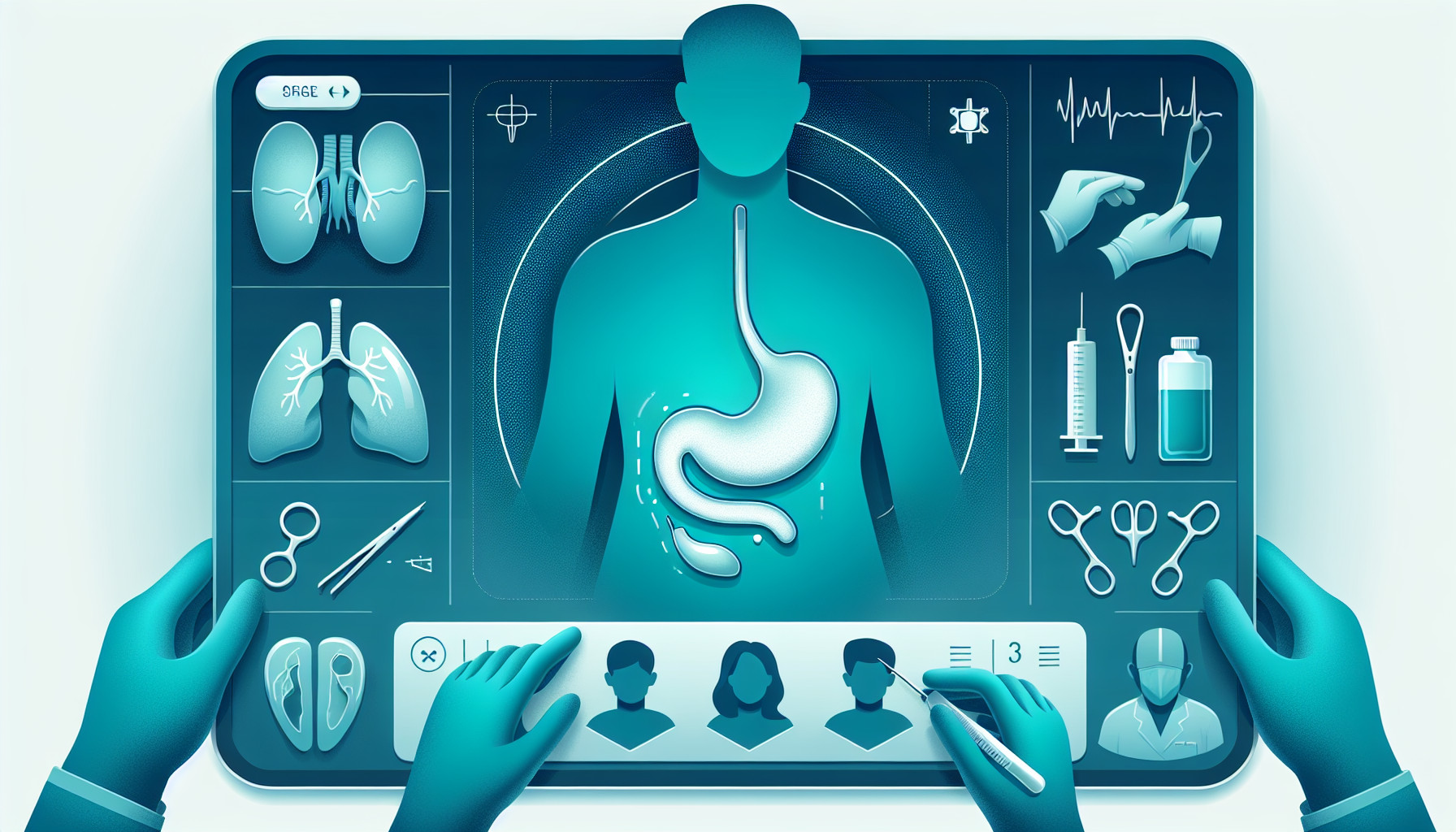Our Summary
This research paper looks at a specific type of surgery called a subtotal cholecystectomy, which is a procedure used in difficult gallbladder cases when there’s a high risk of damaging nearby structures due to severe inflammation. This type of surgery has become more common in recent years.
The research aimed to find out which factors might make a surgeon more likely to choose this type of procedure. They looked at all cases of this surgery from 2016 to 2019, collecting data on patients’ details, lab results, imaging, diagnosis before surgery, surgical technique, and the experience level of the surgeons.
The results showed that older age, being male, having a higher count of white blood cells (which can indicate inflammation or infection), and having a pre-surgery diagnosis of a specific type of gallbladder inflammation (acute on chronic cholecystitis) all increased the chance of having a subtotal cholecystectomy.
Interestingly, the experience level of the surgeon didn’t seem to play a role in the decision to perform this type of surgery. The procedure was used by all levels of surgeons as a strategy in severe gallbladder cases.
FAQs
- What is a subtotal cholecystectomy and when is it typically used?
- What factors were found to increase the chance of a patient having a subtotal cholecystectomy?
- Does the experience level of the surgeon impact the decision to perform a subtotal cholecystectomy?
Doctor’s Tip
One helpful tip that a doctor might tell a patient about cholecystectomy is to follow all post-operative care instructions carefully to ensure proper healing and recovery. This may include taking prescribed pain medications, eating a healthy diet, avoiding heavy lifting or strenuous activities, and attending follow-up appointments with your healthcare provider. It is important to communicate any concerns or complications with your doctor promptly.
Suitable For
Overall, patients who are recommended for a cholecystectomy (either a traditional or subtotal procedure) typically have symptomatic gallstones, which can cause symptoms such as abdominal pain, nausea, vomiting, and jaundice. Other conditions that may warrant a cholecystectomy include acute cholecystitis (inflammation of the gallbladder), chronic cholecystitis (long-term inflammation of the gallbladder), gallbladder polyps, and gallbladder cancer.
Patients who have recurrent episodes of gallstone-related complications, such as pancreatitis or cholangitis, are also often recommended for cholecystectomy. Additionally, patients who are at a higher risk of developing complications from gallstones, such as those with diabetes, obesity, or a history of gallbladder disease, may be advised to undergo surgery to prevent future issues.
Ultimately, the decision to recommend cholecystectomy is based on the individual patient’s symptoms, medical history, and risk factors. It is important for patients to discuss their options with their healthcare provider to determine the most appropriate course of treatment for their specific situation.
Timeline
Before cholecystectomy:
- Patient may experience symptoms such as abdominal pain, nausea, vomiting, and bloating
- Patient may undergo diagnostic tests such as ultrasound, CT scan, or HIDA scan to confirm gallbladder issues
- Patient may be advised to follow a special diet and avoid fatty foods to manage symptoms
- Patient may be prescribed medications to help with pain and inflammation
After cholecystectomy:
- Patient will undergo the surgical procedure to remove the gallbladder
- Recovery time typically ranges from 1-2 weeks, during which the patient may experience pain, fatigue, and discomfort
- Patient will be advised to follow a specific diet to help adjust to life without a gallbladder
- Patient may experience changes in bowel habits, such as diarrhea or constipation
- Patient may need to make lifestyle changes to prevent digestive issues, such as eating smaller meals more frequently
- Long-term complications are rare, but some patients may experience bile duct injuries or issues with bile flow
Overall, cholecystectomy is a common and relatively safe procedure that can provide relief from gallbladder-related symptoms. Following the surgery, most patients are able to resume their normal activities with little to no long-term complications.
What to Ask Your Doctor
Some questions a patient should ask their doctor about cholecystectomy include:
- What are the potential risks and complications associated with a cholecystectomy?
- What is the expected recovery time after the surgery?
- Will I need to make any changes to my diet or lifestyle after the surgery?
- Are there any alternative treatments or procedures that could be considered instead of a cholecystectomy?
- How experienced are you in performing cholecystectomies, and what is your success rate?
- Will I need any additional tests or imaging before the surgery?
- What type of cholecystectomy do you recommend for my specific case, and why?
- How long will I need to stay in the hospital after the surgery?
- What can I expect in terms of pain management after the surgery?
- Are there any long-term effects or complications I should be aware of after the surgery?
Reference
Authors: Tang A, Cohan CM, Beattie G, Mooney CM, Chiang A, Keeley JA. Journal: Am Surg. 2021 Aug;87(8):1245-1251. doi: 10.1177/0003134820979783. Epub 2020 Dec 18. PMID: 33339461
